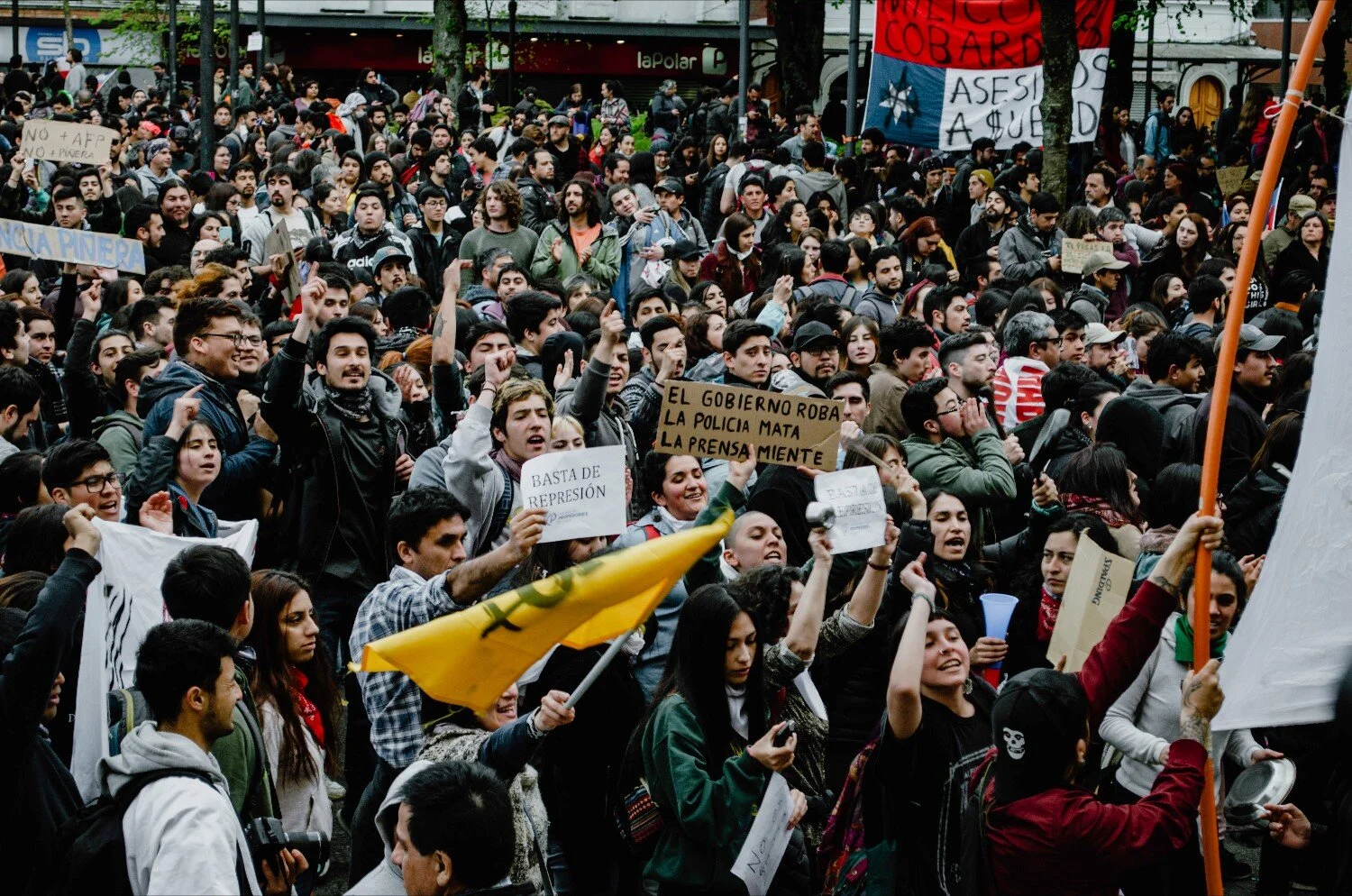Civic Engagement in Latin America
/by Makayla Vasek, Communications Specialist
Election season is in full swing in the U.S. as voters line up at the polls and send their mail-in ballots. With bipartisan tensions and media overload, it’s easy to become hyper-focused on national politics and forget where we are positioned in international affairs. As we promote the responsibility of being global citizens, we turn our focus on Latin American politics and how three countries are approaching important elections and policies during a global pandemic.
Dominican Republic: General Election
Even after a two-month delay, the Dominican Republic was the first nation in the Western Hemisphere to conduct presidential and congressional elections during the pandemic. On July 5, 2020, citizens voted to elect their president, vice-president, 32 senators, and 190 deputies - the first general election in Dominican history in which all authorities were elected simultaneously.
Outgoing President Daniel Medina was barred from running based on term limits, opening the door for a new leader. Despite never having held an elected office, businessman Luis Abinader won the majority vote with his running mate Raquel Pena, bringing the Modern Revolutionary Party (PRM) into power after a 16-year administration under the Dominican Liberation Party (PLD). The PRM also won majority control of the Senate and only came up 6 seats short in the Chamber of Deputies.
President Abinader is inheriting an economy that has faced a steady decline in GDP over the past few years, a condition that has only worsened since the start of the pandemic. Perhaps, their economic predicament is what encouraged citizens to bring a businessman to power. Even with his business expertise, however, Abinader faces a steep uphill climb to reach national financial stability.
Read more about the Dominican power shift and Abinader’s political stances here.
Bolivia: Presidential Election
On October 18, 2020, Luis Arce was elected as Bolivia’s next president in an absolute majority, with 55% of the vote. Despite expectations of backlash from his runner-ups and their political parties, Arce was accepted as the clear winner, a smooth transition of power in a country that is accustomed to violent displacement.
Last November, President Evo Morales, a member of the Movement for Socialism (MAS) party, was ousted from his position of power by a military coup after his election for a fourth term was deemed fraudulent and headed toward authoritarianism. After 14 years of leadership, Morales self-exiled himself to Argentina where he currently resides. The right-leaning Organization of American States (OAS) then selected Jeanine Añez, an opponent of Morales, as interim leader.
Añez has spent her time in power stifling dissent with anti-MAS rhetoric and postponing the election. Without parliamentary pressure and global criticism, it’s likely that the election would have been dissolved altogether. Over the past year, the government has overhauled the electoral tribunal and initiated an education campaign to rebuild trust in its election system. This campaign combined with the working-class’s desire for change resulted in 88% voter participation - the second-highest turnout recorded in Bolivian history.
While there are some fears that President Arce, another MAS member, will continue Morales’s authoritative agenda, Arce has already promised to govern for only his allotted 5 years. As a former economic minister, he is expected to continue Bolivia’s upward economic trajectory despite the impact of the pandemic. With the world’s third-highest per-capita death rate from COVID-19, however, Bolivia is in a dire situation with few healthcare resources. How Arce chooses to lead will set a precedent for Bolivia’s economy, future democracy, and national health.
Read more about what to expect from Arce’s presidency here.
Political protest in Chile, 2019
Chile: Constitutional Referendum
Since its infamous dictatorship under Augusto Pinochet, Chile has been governed under a 40-year-old constitution that many citizens consider inherently corrupt in relation to their current ideals as a representative democratic republic. Responding to a number of organized protests, the nation voted in favor of a constitutional referendum on October 25, 2020, that will call for a constitutional assembly in April 2021. The majority of citizens who voted in favor of the referendum expressed their preference that the new constitution authors should be elected by citizens and composed of 50% men and 50% women.
Almost 30 years after the fall of Pinochet, Chilean citizens expressed their discontent with the repercussions of income equality during a number of public demonstrations in October of 2019. Over the past decade, Chile has been one of the fastest-growing economies in Latin America, but as the money rolls in, the resultant income disparity only grows. Since last October, Chileans have continued to voice their opinions on political corruption, moving the government to organize this referendum.
Some view the rewrite as a symbolic way to finally eliminate Pinochet - a man known for his disregard of human rights but who was never officially convicted for his crimes - from their current government system. Others hope this will be a productive result of the “social explosion” that erupted last October and has projected Chile into a constant state of protest. In either case, the writing of an entirely new constitution will take time and come with unexpected challenges that will be important to watch.
Read more about the national and global significance of Chile’s vote on constitutional referendum here.
Practicing Global Citizenship
We are seeing people practice their citizen rights through civic engagement around the world. In the U.S., we anticipate our own opportunity to vote, but what happens after election day? We can practice our global citizenship by not only partaking in our own elections but also actively paying attention to foreign politics.
Learn from Travel’s faculty-led programs and virtual study abroad experiences allow professors and students to understand these politics and policies on a deeper level by immersing themselves in another country’s political culture. As we see even among these three nations, leadership and power struggles are constantly shifting, and it’s important that we understand these differences in order to effectively initiate international education and cross-cultural collaboration.















